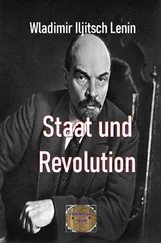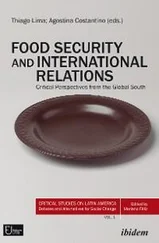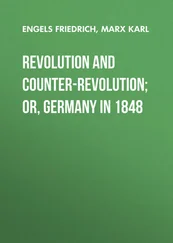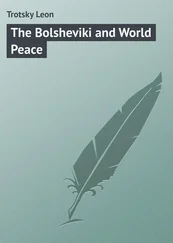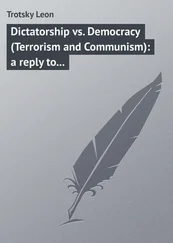Leon Trotsky - Our Revolution - Essays on Working-Class and International Revolution, 1904-1917
Здесь есть возможность читать онлайн «Leon Trotsky - Our Revolution - Essays on Working-Class and International Revolution, 1904-1917» — ознакомительный отрывок электронной книги совершенно бесплатно, а после прочтения отрывка купить полную версию. В некоторых случаях можно слушать аудио, скачать через торрент в формате fb2 и присутствует краткое содержание. Жанр: Русская классическая проза, foreign_language, на английском языке. Описание произведения, (предисловие) а так же отзывы посетителей доступны на портале библиотеки ЛибКат.
- Название:Our Revolution: Essays on Working-Class and International Revolution, 1904-1917
- Автор:
- Жанр:
- Год:неизвестен
- ISBN:нет данных
- Рейтинг книги:4 / 5. Голосов: 1
-
Избранное:Добавить в избранное
- Отзывы:
-
Ваша оценка:
- 80
- 1
- 2
- 3
- 4
- 5
Our Revolution: Essays on Working-Class and International Revolution, 1904-1917: краткое содержание, описание и аннотация
Предлагаем к чтению аннотацию, описание, краткое содержание или предисловие (зависит от того, что написал сам автор книги «Our Revolution: Essays on Working-Class and International Revolution, 1904-1917»). Если вы не нашли необходимую информацию о книге — напишите в комментариях, мы постараемся отыскать её.
Our Revolution: Essays on Working-Class and International Revolution, 1904-1917 — читать онлайн ознакомительный отрывок
Ниже представлен текст книги, разбитый по страницам. Система сохранения места последней прочитанной страницы, позволяет с удобством читать онлайн бесплатно книгу «Our Revolution: Essays on Working-Class and International Revolution, 1904-1917», без необходимости каждый раз заново искать на чём Вы остановились. Поставьте закладку, и сможете в любой момент перейти на страницу, на которой закончили чтение.
Интервал:
Закладка:
When the Russian Revolution broke out, it was no surprise for Trotzky. He had anticipated it. He had scented it over the thousands of miles that separated him from his country. He did not allow his joy to overmaster him. The March revolution in his opinion was only a beginning. It was only an introduction to a long drawn fight which would end in the establishment of Socialism.
History seemed to him to have fulfilled what he had predicted in 1905 and 1906. The working class was the leading power in the Revolution. The Soviets became even more powerful than the Provisional Government. Trotzky preached that it was the task of the Soviets to become the government of Russia. It was his task to go to Russia and fight for a labor government, for Internationalism, for world peace, for a world revolution. "If the first Russian revolution of 1905," he wrote on March 20th, "brought about revolutions in Asia, – in Persia, Turkey, China, – the second Russian revolution will be the beginning of a momentous Social-revolutionary struggle in Europe. Only this struggle will bring real peace to the blood-drenched world."
With these hopes he went to Russia, – to forge a Socialist Russia in the fire of the Revolution.
Whatever may be our opinion of the merits of his policies, the man has remained true to himself. His line has been straight.
THE PROLETARIAT AND THE REVOLUTION
The essay The Proletariat and the Revolution was published at the close of 1904, nearly one year after the beginning of the war with Japan. This was a crucial year for the autocratic rulers of Russia. It started with patriotic demonstrations, it ended with a series of humiliating defeats on the battlefields and with an unprecedented revival of political activities on the part of the well-to-do classes. The Zemstvos (local elective bodies for the care of local affairs) headed by liberal landowners, conducted a vigorous political campaign in favor of a constitutional order. Other liberal groups, organizations of professionals (referred to in Trotzky's essay as "democrats" and "democratic elements") joined in the movement. The Zemstvo leaders called an open convention in Petersburg (November 6th), which demanded civic freedom and a Constitution. The "democratic elements" organized public gatherings of a political character under the disguise of private banquets. The liberal press became bolder in its attack on the administration. The government tolerated the movement. Prince Svyatopolk-Mirski, who had succeeded Von Plehve, the reactionary dictator assassinated in July, 1904, by a revolutionist, had promised "cordial relations" between government and society. In the political jargon, this period of tolerance, lasting from August to the end of the year, was known as the era of "Spring."
It was a thrilling time, full of political hopes and expectation. Yet, strange enough, the working class was silent. The working class had shown great dissatisfaction in 1902 and especially in summer, 1903, when scores of thousands in the southwest and in the South went on a political strike. During the whole of 1904, however, there were almost no mass-manifestations on the part of the workingmen. This gave an occasion to many a liberal to scoff at the representatives of the revolutionary parties who built all their tactics on the expectation of a national revolution.
To answer those skeptics and to encourage the active members of the Social-Democratic party, Trotzky wrote his essay. Its main value, which lends it historic significance, is the clear diagnosis of the political situation. Though living abroad, Trotzky keenly felt the pulse of the masses, the "pent up revolutionary energy" which was seeking for an outlet. His description of the course of a national revolution, the rôle he attributes to the workingmen, the non-proletarian population of the cities, the educated groups, and the army; his estimation of the influence of the war on the minds of the raw masses; finally, the slogans he puts before the revolution, – all this corresponds exactly to what happened during the stormy year of 1905. Reading The Proletariat and the Revolution , the student of Russian political life has a feeling as if the essay had been written after the Revolution, so closely it follows the course of events. Yet, it appeared before January 9th, 1905, i.e., before the first great onslaught of the Petersburg proletariat.
Trotzky's belief in the revolutionary initiative of the working class could not be expressed in a more lucid manner.
The proletariat must not only conduct a revolutionary propaganda. The proletariat itself must move towards a revolution.
To move towards a revolution does not necessarily mean to fix a date for an insurrection and to prepare for that day. You never can fix a day and an hour for a revolution. The people have never made a revolution by command.
What can be done is, in view of the fatally impending catastrophe, to choose the most appropriate positions, to arm and inspire the masses with a revolutionary slogan, to lead simultaneously all the reserves into the field of battle, to make them practice in the art of fighting, to keep them ready under arms, – and to send an alarm all over the lines when the time has arrived.
Would that mean a series of exercises only, and not a decisive combat with the enemy forces? Would that be mere manœuvers, and not a street revolution?
Yes, that would be mere manœuvers. There is a difference, however, between revolutionary and military manœuvers. Our preparations can turn, at any time and independent of our will, into a real battle which would decide the long drawn revolutionary war. Not only can it be so, it must be. This is vouched for by the acuteness of the present political situation which holds in its depths a tremendous amount of revolutionary explosives.
At what time mere manœuvers would turn into a real battle, depends upon the volume and the revolutionary compactness of the masses, upon the atmosphere of popular sympathy which surrounds them and upon the attitude of the troops which the government moves against the people.
Those three elements of success must determine our work of preparation. Revolutionary proletarian masses are in existence. We ought to be able to call them into the streets, at a given time, all over the country; we ought to be able to unite them by a general slogan.
All classes and groups of the people are permeated with hatred towards absolutism, and that means with sympathy for the struggle for freedom. We ought to be able to concentrate this sympathy on the proletariat as a revolutionary power which alone can be the vanguard of the people in their fight to save the future of Russia. As to the mood of the army, it hardly kindles the heart of the government with great hopes. There has been many an alarming symptom for the last few years; the army is morose, the army grumbles, there are ferments of dissatisfaction in the army. We ought to do all at our command to make the army detach itself from absolutism at the time of a decisive onslaught of the masses.
Let us first survey the last two conditions, which determine the course and the outcome of the campaign.
We have just gone through the period of "political renovation" opened under the blare of trumpets and closed under the hiss of knouts, – the era of Svyatopolk-Mirski – the result of which is hatred towards absolutism aroused among all the thinking elements of society to an unusual pitch. The coming days will reap the fruit of stirred popular hopes and unfulfilled government's pledges. Political interest has lately taken more definite shape; dissatisfaction has grown deeper and is founded on a more outspoken theoretical basis. Popular thinking, yesterday utterly primitive, now greedily takes to the work of political analysis. All manifestations of evil and arbitrary power are being speedily traced back to the principal cause. Revolutionary slogans no more frighten the people; on the contrary, they arouse a thousandfold echo, they pass into proverbs. The popular consciousness absorbs each word of negation, condemnation or curse addressed towards absolutism, as a sponge absorbs fluid substance. No step of the administration remains unpunished. Each of its blunders is carefully taken account of. Its advances are met with ridicule, its threats breed hatred. The vast apparatus of the liberal press circulates daily thousands of facts, stirring, exciting, inflaming popular emotion.
Читать дальшеИнтервал:
Закладка:
Похожие книги на «Our Revolution: Essays on Working-Class and International Revolution, 1904-1917»
Представляем Вашему вниманию похожие книги на «Our Revolution: Essays on Working-Class and International Revolution, 1904-1917» списком для выбора. Мы отобрали схожую по названию и смыслу литературу в надежде предоставить читателям больше вариантов отыскать новые, интересные, ещё непрочитанные произведения.
Обсуждение, отзывы о книге «Our Revolution: Essays on Working-Class and International Revolution, 1904-1917» и просто собственные мнения читателей. Оставьте ваши комментарии, напишите, что Вы думаете о произведении, его смысле или главных героях. Укажите что конкретно понравилось, а что нет, и почему Вы так считаете.



